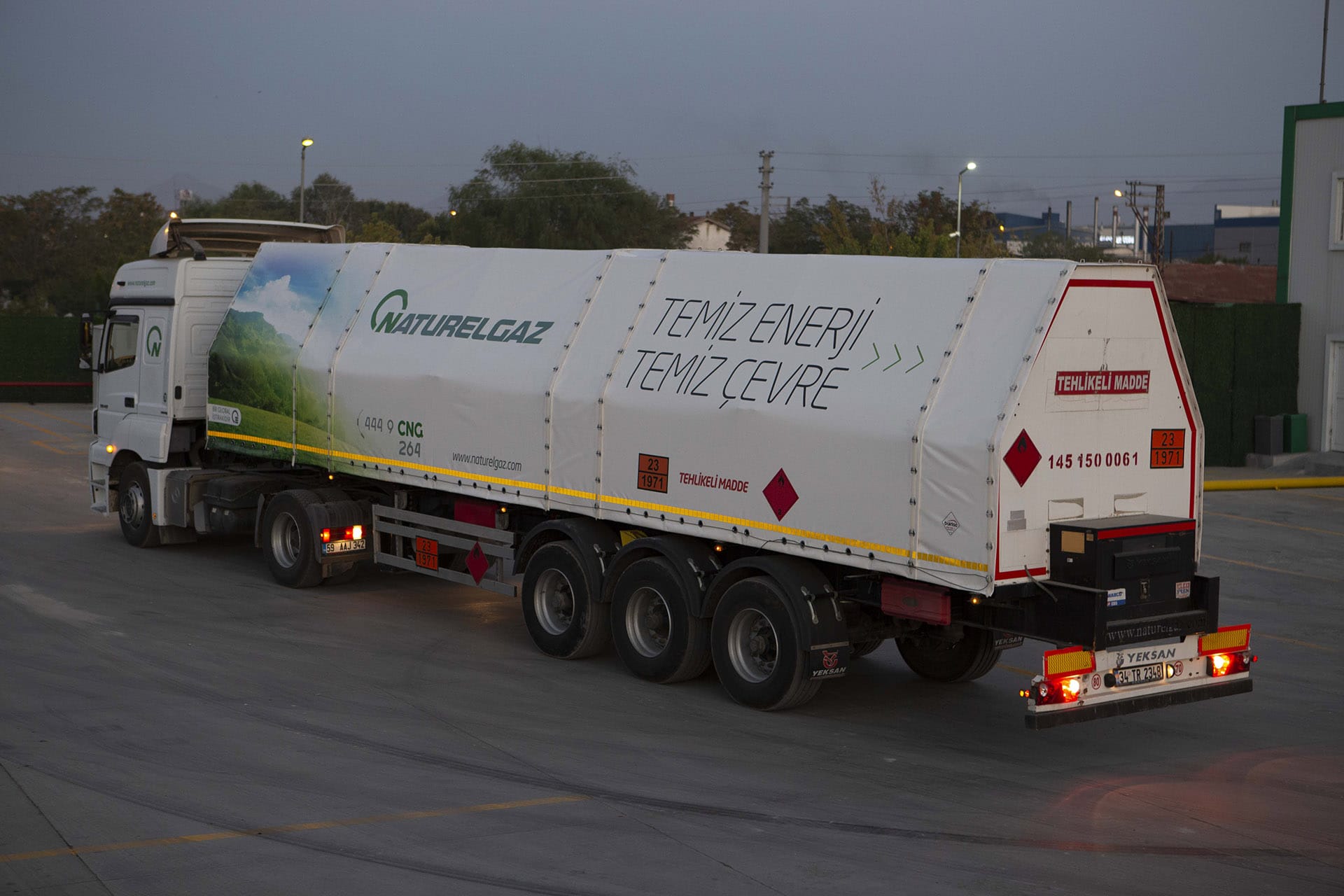What is CNG?
Natural gas is a colorless, odorless and slightly flammable gas of fossil origin. It consists of various hydrocarbons such as Methane (CH4), Ethane (C2H8), Propane (C3H8), Butane (C4H10), Carbon Dioxide (CO2), Nitrogen (N2), Helium (He) and Hydrogen sulfide (H2S). When burned, it does not form ash and sulfur compounds and does not cause harmful acid rain. Today, it is used as a valuable and strategic energy source in residences, workplaces, official institutions, schools, health institutions, factories and accommodation facilities.
CNG (Compressed Natural Gas) is obtained by compressing natural gas supplied from the national pipeline network or urban distribution system under a pressure of approximately 200 bar. CNG is an odorless, colorless and non-toxic gaseous fuel.


